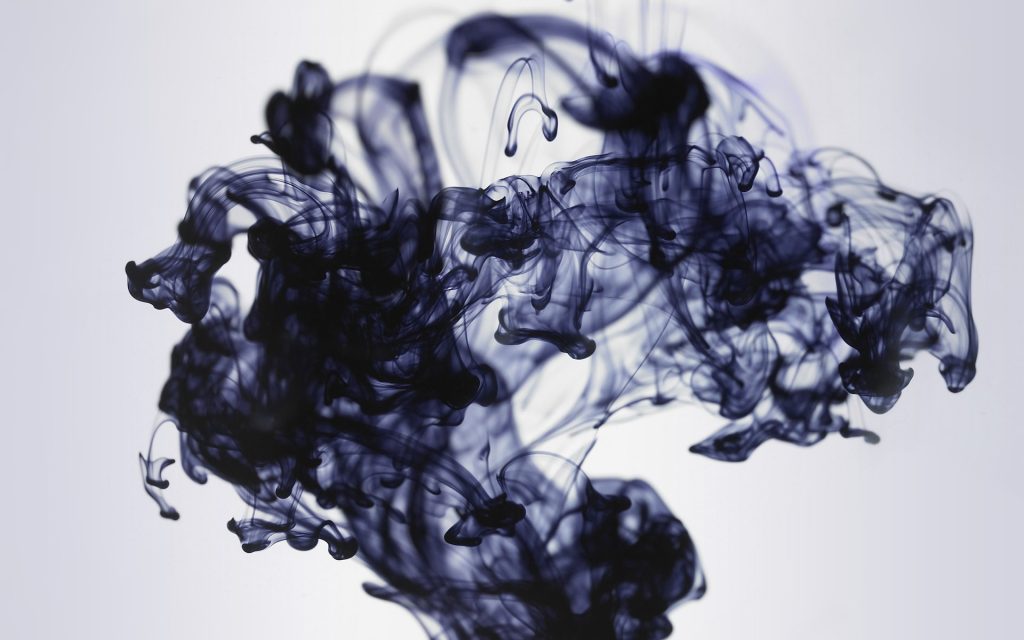 By umair haque,
By umair haque,
I think there’s an unseen battle raging in the world today. It’s not a battle, really, over politics, society, or even the world. It’s about you. Who you really are, why you are here, and what your life means. It’s a battle for control of your soul.
You might think that’s overstated. I just want to put it simply and clearly — and you can be the judge. This battle is between between two ways of thinking, seeing, understanding the world. I’ll call them reductionism and expansionism. Now, I mean them in a subtle, difficult way. What is “expanded” or “reduced” is us, in the end, our better selves, our possibilities for meaning, happiness, purpose, our truths— but let me explain how.
To illustrate it, I’ll use the example of capitalism, which is today’s — and maybe history’s — greatest reductionist system. You can skip it, and go straight to the marrow if you want.
What do all today’s great problems have in common? Some — nationalism, extremism, neo-fascism — are forms of reactionary backlash to capitalism, what happens when capitalism degenerates into its raw elements, greed, fear, and hate. Some — climate change, inequality, middle class implosion, precarity, democratic decay — are direct consequences of capitalism, which, left to its own devices, will happily eat through everything. Today’s great global problems are all results of capitalism because capitalism is a form of reductionism. It’s a system that reduces everything in the world that matters, more or less, to nonexistence, erases it, beginning with you.
Hence, the more capitalism there is in a society, the more people feel a sense of meaninglessness and emptiness and futility. Our lives don’t matter very much, we feel, all too often — and so we try to fill the hole in our souls by doing what we’re told will make us happy, which is going out buying stuff. But what’s the point of buying stuff? It’s not the stuff. It’s status. So we buy something to relieve ourselves of the pain of meaninglessness — and maybe it works for a day or two. We feel like someone again. Until everyone else has it, and then the race starts all over again. We call all this “consumerism” — but I think that word fails to convey the sense of desperation, of hopelessness that drives the process.
Maybe, though, we don’t have the money even to do that. So what do we turn, for a sense of meaning and belonging and status? Nationalism, extremism, various forms of neo-fascism. We’re not at the bottom of the pecking order anymore. They are — those dirty, filthy subhumans. Now there’s not just a void — there’s a darkness, which is better, at least, than a nothingness. Hate, spite, and rage fill up the absence of a live which has gone nowhere. Now there is status, and with status comes pleasure, comes relief, comes the thrill and exhilaration of dominance and power. Control of your soul, remember?
(So when we say “capitalism”, we turn into a great abstraction what is a simple reality. Before, you might have been a carpenter or tradesman or farmer. Along comes capitalism. It says: now you work for us. Who’s us? Us is a “company” — only it’s not really a company, it’s those who own the company. Who’s that? Nobody really knows anymore. It’s some bizarre cocktail of billionaires, hedge funds, private equity groups, and whomever else holds the “shares” this week, month, nanosecond. Your job now is to maximize profits for them, whatever the costs. If it shreds your community, if it cheats your neighbours, if it impoverishes your town — so be it. Now you are working, you’re told, for a greater cause. That cause is everyone’s greater good, apparently — at least according to the theories of capitalism.
Only you don’t really see it turning out that way. What do you feel? You feel a sense of emptiness. Of meaninglessness. Nothing you do ever changes the basic fact of your exploitation, and nothing you do under the terms of exploitation ever gives you a sense that you matter. As your social bonds fray and tear, your sense of belonging erodes. As your community withers, your sense of being at home falls apart. You begin to feel like a little disconnected atom, alone in the universe, at odds with everyone else. It’s every person for themselves, isn’t it? Isn’t that the best — and only way — to live? Only the strong should survive — that is the principle of the moral crusade you are on, after all. Your job is to make a world where that is the only law.)
Capitalism has now produced in you it’s own internalized psychology — bang! It’s got your soul, somehow . You have become a true believer in the moral crusade. You prize self-interest, being on top, cruelty, possession. But you don’t quite connect the dots of your own unhappiness. Why does life feel so empty? Why do you feel like you’re never quite at peace, like you’ve never really arrived, like you’re never really at home? Why is there a constant sense of anxiety and unrest and dread in you? Wait — isn’t that normal, even good? Don’t only unquiet and harrowed minds produce great and wonderful things? And so there you are, pretending with one face — the public one — to be happy, while dying a little inside, every day, and keeping it bottled up, hidden away, carefully apart, where no one can see. Weakness is forbidden, after all. This is the birth of the false self, the inauthentic thing that capitalism makes of you. It has broken you now — your spirit, your true self, all the best things in you — only you don’t quite know it. You are being conditioned to reduceyourself to the smallest, shallowest part of you. You are becoming a reductionist — only you don’t know it yet.
Now, what can an inauthentic person do about great and grave problems? What can one who has internalized capitalism’s moral law — only the strong should survive, and the weak perish? So there is the world, being wracked by inequality, climate change, extremism, and so on — and here we are, foolish human beings, squabbling over petty things. Capitalism has left us not just economically and socially weak, but also morally and psychologically broken, too. It had deprived us of our courage, empathy, wisdom, and clarity — all the truest kinds of strength we have, and that we need. At least enough of us that the world’s problems are things not to solve — but to bicker over. It has made enough of us foolish and weak — more interested in status, power, greed, and hate, which is to say, obsessed with death, instead of fighting for life — that the world turning into a kind of gruesome dystopia is perfectly alright with us, as long as we come out on top. That’s reductionism.
(That might strike some of you — especially Americans — as baffling: “isn’t that just how people are?” Of course it’s not. People are not the strange and foolish machines of appetite capitalism makes them out to be. But that is how enough of us have been conditioned to see ourselves, to limit ourselves to being — and, crucially, that is what such people are now trying to limit everyone else to being, too. Do you see the link?)
So here we are as a world. Some of us say, we must do better, and come together to solve these great problems, in ways that transcend greed, spite, hate, all the narrow forms of self-interest. And others of us say — led by a weird coterie of American intellectuals and pundits, mostly — “No! That is forbidden! We are just machines of appetite! Nobody is allowed to be anything more than a profit-maximizing robot, an algorithm in human form, a pleasure-guided weapon of mass self-destruction!! That is the only kind of world we will let you have!”
That, my friends, is the true battle of now. It is between two kinds of people, ways of thinking, seeing, understanding. Between reductionists and expansionists. I’ve worked through the the (overly long) example of capitalism to illustrate for you one form of reductionism, so now let me go a little deeper.
The reductionists are those who wish to reduce human beings to predators and prey — that is their reductive view of all nature, and therefore, also human nature. All they see when they look at the world is what capitalism allows them to see: violence, competition, dominance, possession. They don’t look at the way the sunlit rain nourishes the sea, or the way a little elephant who has lost his mother grieves, or the way a dog protects an epileptic child from fits, and see something remarkable and beautiful — something improbably transcendent. They only see brutal conquest, shark and serpent devouring fish and fowl — because that is all capitalism has conditioned them to see. In other words, their view of nature is trivially false — nature competes and nourishes and nurtures, not just demolishes and destroys — how else could it live? — but they cannot see even that far.
(Hence, reductionists commit the same old intellectual mistake time and again, and “debate” it — they reduce everything to “nature versus nurture”, when it’s patently obvious that nature nurtures, and nurturing is nature, yet so is death, decay, and letting go — but I’ll come back to all that.)
The reductionists wish to reduce human beings, their societies, their morals, their norms, their values, everything, to one thing — the principle they see in nature, of predator consuming prey. Their moral law is that the strong should survive, and the weak perish — hence the inherent definition of “strong” is the one who has the sharpest teeth, the most ruthless and abusive and cruel — so the greater good is had.
Hence, they command — “you can never have any kind of society but one in which people are pure appetite! Anything else is forbidden!! You can’t have any other kind of system — not a polity, not a city, not a town, not an economy. That is all anyone is, or can be!” Everything in human life is reduced, in this way, to predation, to consumption, to exploitation, which is valorized as a triumphant, noble, worthy act. But is it? If “nature” isn’t that simple — are we?
Then there are the expansionists. They are those who wish to transcend the predatory logic above — with nurturance, care, gentleness, and concern. We realize ourselves not through harm, but through grace. They say, looking around at the world a little more carefully, just the opposite: “If we are to go on coexisting, surviving, prospering, then we must let this foolish idea go. Even animals are not just programmed things, algorithmic predators and prey. They groom and love and grieve and mourn, too. You see only that because that is all you can see. And that is all you can see because it is all that capitalism lets you see. Making everything a machine of appetite — beginning with ourselves — is a false and reductive view of nature, and assigning it to us is something we reject inherently. If that is the world we build — one where everything is mechanized appetite — then we are moral failures, intellectual bankrupts, and historical disgraces. We have not become our fullest, truest, selves this way.”
Now, the fact is that the reductionists are winning. The Jordan Petersons slash Steven Pinkers of the world, the “intellectual dark web” (LOL), “effective altruism”, American capitalism, and so on — what unifies all these painfully foolish ways of not-quite-thinking is the belief that people are just machines of appetite. The reductionist view is ascendant because in truth, is just another name for the same old ways of exploitation, violence, and inherited domination that underpinned feudalism, tribalism, and empire, too, and now undergird capitalism, too.
So the battle of now is really between two visions of nature, or the meaning of the relationship between us and the world. “Nature”, by which we purport to mean what is “natural” — but we are really saying something more like: what is true, genuine, real, and worthy about us? What is our rightful place here, in this world, in this absurd and strange position we find ourselves in, mortal, knowing, fragile, full of despair and love and mourning and laughter? What are we? “Nature” contains all that — and so it is a bigger question than we allow ourselves to really ask.
That is what I mean by the battle for control of your soul. “Capitalism” is only really then the latest ideological label in that battle, which is one as old as time — a battle over the place humankind holds, in its essence, its truth, its meaning and purpose here in the world. But I don’t want to reduce it to “Hobbes vs Locke!”, because its truth is subtler — and less Western than that. Even in the East, this battle over the nature of humankind has been fought, too, in just the same way, reduced or expanded.
I think you know, by now, which side I fall on. I am an expansionist — not a reductionist. And I am one not just because it’s obvious to see that reducing “nature”, which is a reductive idea to begin with, to brutality and predation is trivially, laughably false (have you never seen a monsoon?), but also because of the consequences of making such a foolish mistake. Are people just machines of appetite? What lies that way? A reversion to feuds, to tribes, which produce kings, which battle over empires, which means endless war and violence. If people are just machines of appetite, if the strong should survive, the weak perish, then the only moral principle is the satiation of the hungriest predator. Does anything but folly, ruin, and misery really lie in that direction — no matter how capitalism has conditioned to want to be above everyone else?
But if people aren’t just machines of appetite, damned and predestined to be mindless and blind things who are only here to harm and abuse and ravage as much as they can, laugh numbly, scream in self-revulsion, and then die — then what are they? Ah, you see. It’s a subtle, difficult question. I would say the answer is as simple and timeless as it is beautiful. Then they are free.
If you ask me, all that is the battle of now. It’s not about the world, politics, or even society, really. It’s about you. Your soul. Who you really are, and why you are here, and what you mean. Between reductionists and expansionists. For a truer kind of freedom — or for a dead past, confined by all the mechanisms of reduction, from the algorithm to the corporation, to stagnation and subjugation. The reductionists say, essentially, that only through violence do we realize ourselves. Fools throughout history have said that, haven’t they? But expansionists understand, I think, a truer truth. The grace and peace we find beside one another are the measures of the depth of us.
Source: https://eand.co
Disclaimer: We at Prepare for Change (PFC) bring you information that is not offered by the mainstream news, and therefore may seem controversial. The opinions, views, statements, and/or information we present are not necessarily promoted, endorsed, espoused, or agreed to by Prepare for Change, its leadership Council, members, those who work with PFC, or those who read its content. However, they are hopefully provocative. Please use discernment! Use logical thinking, your own intuition and your own connection with Source, Spirit and Natural Laws to help you determine what is true and what is not. By sharing information and seeding dialogue, it is our goal to raise consciousness and awareness of higher truths to free us from enslavement of the matrix in this material realm.
 EN
EN FR
FR




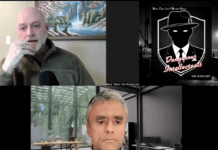

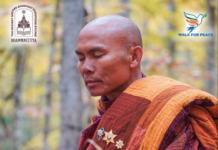

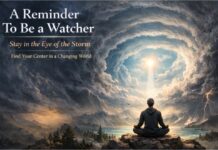


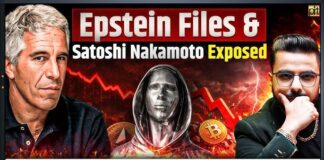

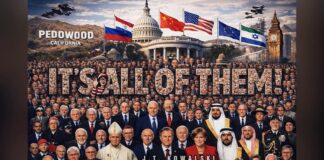
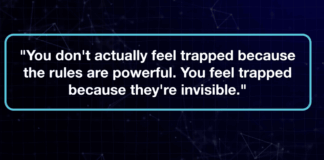












Now I’m confused. I thought capitalism allowed the freedom to own your own business and be as successful as you can while creating jobs, paying well and creating a community resource. All the greed is a separate entity, evil paradigm way of thinking that is aimed at making the most $ possible for the least cost regardless of how people are treated.
These are two separate ideas. Capitalism isn’t greed. Greed is Greed.
A tirade against Capitalism. So what did I miss?
Excellent article that hits the nail on the head and drives the point home; we buy all of the latest stuff because we feel that life is pointless and we are meaningless. Thank you